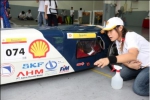Tatang Hernas Widjaja: Fuel Subsidy Still Less Appropriate
By Diviezetha Astrella Thamrin
Editor Diviezetha Astrella Thamrin
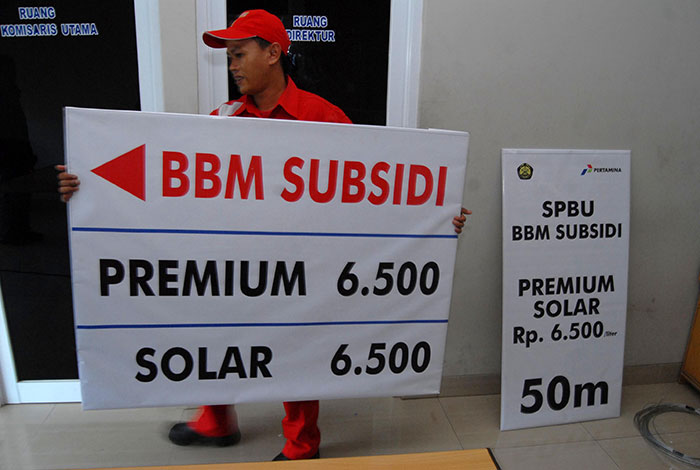
 BANDUNG, itb.ac.id - The rise of the issue of rising prices of fuel oil (BBM) subsidy amid a general discussion in today's society. Also arise polemic controversial fuel subsidy itself. Voting factions House of Representatives (DPR) in the House of Representatives plenary session on Monday (17/06/13) finally endorsed the Draft State Budget Amendment (Proposed Revised) 2013 regarding the increase in fuel prices, which rose to Rp 6.500 premium and diesel to Rp 5.500)
BANDUNG, itb.ac.id - The rise of the issue of rising prices of fuel oil (BBM) subsidy amid a general discussion in today's society. Also arise polemic controversial fuel subsidy itself. Voting factions House of Representatives (DPR) in the House of Representatives plenary session on Monday (17/06/13) finally endorsed the Draft State Budget Amendment (Proposed Revised) 2013 regarding the increase in fuel prices, which rose to Rp 6.500 premium and diesel to Rp 5.500) 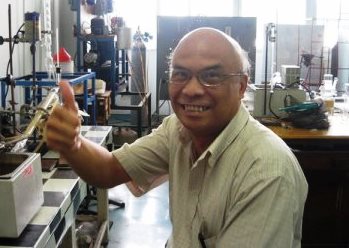 Tatang Hernas Soerawidjaja, professor of Chemical Engineering Program ITB which is also a member of the National Research Council (Energy Commission) and Vice Chairman of the Board of Experts of the Indonesian Renewable Energy Society (METI), also supports the decision to increase fuel prices decided at a plenary session of the House. According to him, in practice the ultimate goal of providing fuel subsidies in Indonesia and has not reached misguided, and is a futile waste of the state budget.
Tatang Hernas Soerawidjaja, professor of Chemical Engineering Program ITB which is also a member of the National Research Council (Energy Commission) and Vice Chairman of the Board of Experts of the Indonesian Renewable Energy Society (METI), also supports the decision to increase fuel prices decided at a plenary session of the House. According to him, in practice the ultimate goal of providing fuel subsidies in Indonesia and has not reached misguided, and is a futile waste of the state budget.
"The fuel subsidy has become the largest single expenditure since 2007, far greater than spending for other subsidies and expenditure of the Ministry of Education and Culture and the Ministry of Public Works," said Tatang.
According to him, the fuel subsidy caused the price of fuel that is consumed in the country is relatively cheaper than the normal market price. Difference in diesel prices and a large premium between domestic and in neighboring countries is a potential trigger to fraud in the form of smuggling of diesel and premium that is in the country to be sold at a higher price abroad.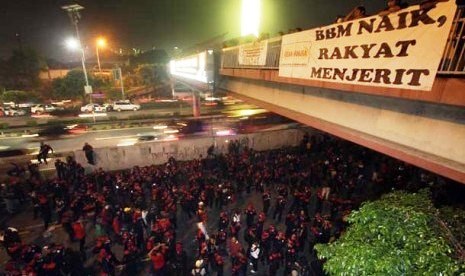 Tatang found that demonstration after demonstration against fuel price increases do not represent actual defense of the common people, even the people on the slump leads slowly. Petroleum and fossil fuels as the main consumption is increasingly scarce and expensive, and the people were supposed to be ready to shift the use of primary energy sources from fossil fuels to renewable sources. "The provision of fuel subsidy should be accompanied by attention and incentives to the industrial development of viable alternative fuels, such as biofuels (BBN) as well as other renewable energy," said Tatang, who is also the Chairman of the Bioenergy Association of Indonesia (IKABI) and member of the Advisory Board Indonesian Biofuel Producers Association (APROBI).
Tatang found that demonstration after demonstration against fuel price increases do not represent actual defense of the common people, even the people on the slump leads slowly. Petroleum and fossil fuels as the main consumption is increasingly scarce and expensive, and the people were supposed to be ready to shift the use of primary energy sources from fossil fuels to renewable sources. "The provision of fuel subsidy should be accompanied by attention and incentives to the industrial development of viable alternative fuels, such as biofuels (BBN) as well as other renewable energy," said Tatang, who is also the Chairman of the Bioenergy Association of Indonesia (IKABI) and member of the Advisory Board Indonesian Biofuel Producers Association (APROBI).
Obtain only 13.92% Fuel Subsidy Benefits Aditya Prasetyo, Chairman of the Division of Energy Studies Student Association of Petroleum Engineering ITB agrees well with Tatang, and expressed that the subsidy policy is now irrelevant and flawed. "Based on data from the National Socio-Economic Survey (NSES) in 2010 by the Central Statistics Agency (BPS), 40% middle income people only benefit of 13.92% of the fuel subsidy. While connoisseurs of fuel subsidy is 20% of people can afford and are in Indonesia with a share of 48.44%, "said Aditya.
Aditya Prasetyo, Chairman of the Division of Energy Studies Student Association of Petroleum Engineering ITB agrees well with Tatang, and expressed that the subsidy policy is now irrelevant and flawed. "Based on data from the National Socio-Economic Survey (NSES) in 2010 by the Central Statistics Agency (BPS), 40% middle income people only benefit of 13.92% of the fuel subsidy. While connoisseurs of fuel subsidy is 20% of people can afford and are in Indonesia with a share of 48.44%, "said Aditya.
Aditya argues, the fuel subsidy will only encourage consumer behavior in the community and lead people to consume fuel to the wasteful and careless. A more realistic fuel prices will encourage savings and process conversion to other energy sources that are cleaner, especially gas.
In addition, Aditya also agree with the statement Tatang to develop alternative fuels industry due to oil as the fuel energy is not a renewable energy source. "The fuel subsidy funds should be diverted to finance infrastructure investment, particularly in the development of new and renewable energy (EBT) as well as the conversion of gas," said Aditya.
Unfortunately, the potential energy sources such as gas Indonesia, geothermal, and biofuels are being developed at this time is still unable to compete due to fuel a "cheap". "How can we diversify energy if the government itself does not create demand for renewable energy and gas?" Aditya intrigue.
Indonesia has the largest geothermal energy potential in the world, ie 29 GW or 40% of the world's geothermal potential. However, the utilization of geothermal Indonesia only amounted to 1,341 MW, due to more number of people who use oil as a primary energy source at a price so cheap due to subsidies.
Domestic oil production is declining day after day, but coupled with the oil consumption actually increased causing Indonesia to import oil at prices continue to skyrocket. Therefore, Aditya believes that the current subsidy policy is already irrelevant.
"Groups of people who want to move forward and be positive about progress, should be aware that the price of crude oil was formed by the balance between supply and demand," said Tatang. He also advised that as the scholars, students and youth pro-progress instead of demanding "Do not raise subsidized fuel prices", but should the government raised fuel prices by (1) raising the salaries of civil servants also mainly lower class, (2) to adjust against wage labor, and (3) raise the purchase price of grain and also products of horticulture farmers to these groups can still buy fuel.
"The fuel subsidy should be made within a time not too long, and is slowly eliminated with a planned fuel subsidy while diverting its funds on the development of alternative fuels, such as biofuels," closed Tatang.

.jpg)
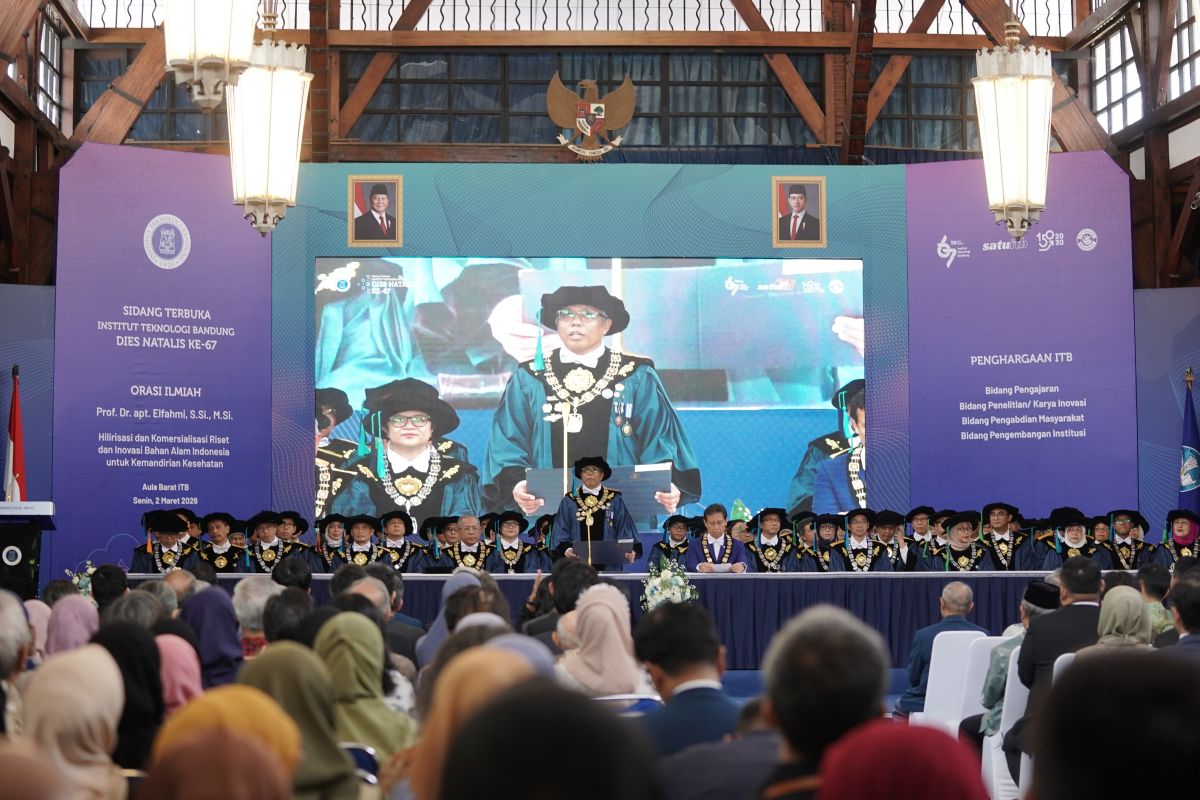
.jpg)
.jpg)
.jpg)

